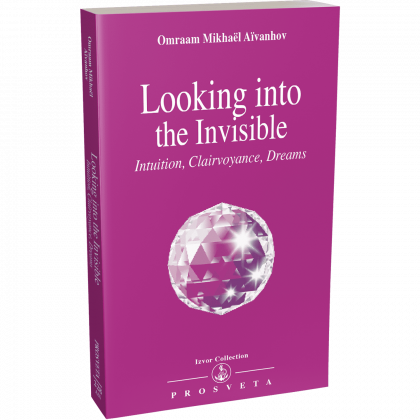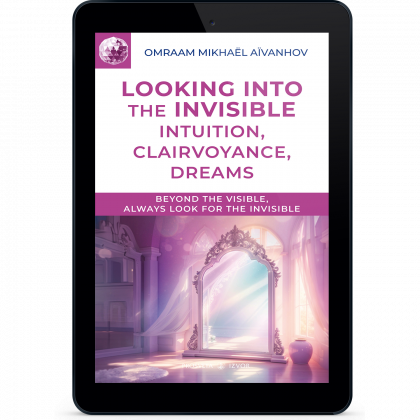What is Intuition?
A faculty beyond reflection and reasoning
'The time has come for you to cease being dazzled by the exploits of the intellect, to acknowledge the existence of your spiritual bodies, to study their different possibilities and work to develop your intuition.
Intuition is that higher form of intelligence that belongs to the causal plane and which, instead of being motivated by egocentric considerations, pursues a purely heliocentric, theocentric goal. In this way, instead of looking for personal advantage in everything you undertake, you will begin to put yourself in the service of God.
Not that God needs anything from us: He is so immensely rich and mighty that he does not need us to work for him.
It is for our own sakes that we are asked to work for God, because that is how we learn to change our point of view and the orientation of our lives; it is we who benefit from our work, we who begin to see improvements in ourselves. When all our energies converge on a focal point other than ourselves, all our inner processes, functions and vibrations change, and instead of being perpetually dull and drab, we become luminous and radiant.'
'The time has come for you to cease being dazzled by the exploits of the intellect, to acknowledge the existence of your spiritual bodies, to study their different possibilities and work to develop your intuition.
For intuition is that higher form of intelligence that belongs to the causal plane and which, instead of being motivated by egocentric considerations, pursues a purely heliocentric, theocentric goal. In this way, instead of looking for personal advantage in everything you undertake, you will begin to put yourself in the service of God.
Not that God needs anything from us: He is so immensely rich and mighty that he does not need us to work for him.
It is for our own sakes that we are asked to work for God, because that is how we learn to change our point of view and the orientation of our lives; it is we who benefit from our work, we who begin to see improvements in ourselves. When all our energies converge on a focal point other than ourselves, all our inner processes, functions and vibrations change, and instead of being perpetually dull and drab, we become luminous and radiant.'



